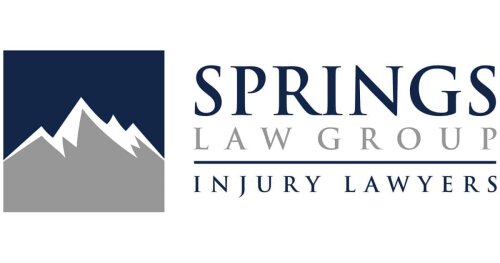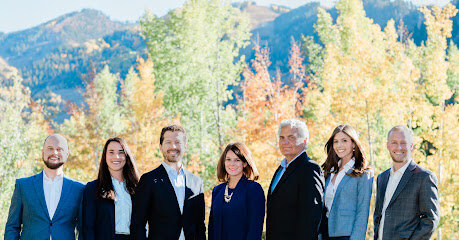Best Wrongful Death Lawyers in Colorado
Share your needs with us, get contacted by law firms.
Free. Takes 2 min.
Or refine your search by selecting a city:
List of the best lawyers in Colorado, United States

About Wrongful Death Law in Colorado, United States
Wrongful death law in Colorado allows certain family members or representatives to take legal action when a loved one has died as a result of another party's negligence or wrongful act. Unlike a criminal case where the state prosecutes the offender, a wrongful death lawsuit is a civil action aimed at securing compensation for survivors who have suffered loss as a result of the death. This area of law is designed to provide financial and emotional relief to families affected by a preventable death, and ensure that responsible parties are held accountable for their actions.
Why You May Need a Lawyer
Wrongful death cases can be emotionally and legally complex. You may need a lawyer if you are experiencing any of the following situations:
- The death of a loved one was caused by a car accident, workplace incident, medical malpractice, defective product, or another party's negligence.
- You are unsure about who is eligible to file a wrongful death claim in Colorado.
- You have questions about the types and amounts of compensation that might be available.
- The at-fault party's insurance company is not cooperating or offering a fair settlement.
- There are multiple parties or complicated factors involved, such as businesses or government entities.
- You need help gathering evidence, documentation, or expert testimony to support your case.
- There is a dispute among family members regarding who should bring the lawsuit or how compensation should be divided.
Local Laws Overview
In Colorado, wrongful death claims are governed primarily by Colorado Revised Statutes sections 13-21-201 through 13-21-204. Here are some of the key aspects:
- Who Can File: During the first year after death, only the spouse of the deceased may file a claim. In the second year, children and parents may also have the right to file, depending on the circumstances.
- Time Limit (Statute of Limitations): In most cases, wrongful death claims must be filed within two years of the date of death. There are exceptions, such as cases involving vehicular homicide, which may extend this period to four years.
- Types of Compensation: Damages may include loss of financial support, loss of companionship, grief, and emotional pain, as well as funeral and burial expenses. In certain cases, punitive damages may also be awarded.
- Burden of Proof: The plaintiff (the person filing the claim) must prove, by a preponderance of the evidence, that the defendant's wrongful act or negligence caused the death.
- Survival Actions: A separate type of claim, called a survival action, may be brought by the estate of the deceased to recover damages the deceased could have claimed if they had survived.
Frequently Asked Questions
What is considered a wrongful death under Colorado law?
A wrongful death is defined as a death caused by the wrongful act, neglect, or default of another person or entity. Common examples include car accidents, medical malpractice, or a death caused by a dangerous product.
Who is eligible to file a wrongful death lawsuit in Colorado?
Eligibility depends on the relationship to the deceased and the timing of the claim. Typically, the spouse has the first right to file during the first year after death. Children and certain other family members may be eligible in the second year. If there are no surviving spouses or children, parents may be able to file.
How long do I have to file a wrongful death claim in Colorado?
In general, you have two years from the date of death to file a wrongful death lawsuit. Certain exceptions may apply, such as cases involving vehicular homicide, where the period may extend to four years.
What kinds of damages can I recover in a wrongful death case?
Damages may include compensation for lost financial support, loss of companionship, grief and emotional pain, and the costs of funeral and burial services. In rare cases, punitive damages may also be available.
Do I need an attorney to file a wrongful death lawsuit?
You are not required to have an attorney, but having legal representation is highly recommended. Wrongful death cases are often complicated and involve substantial investigation, negotiation, and legal expertise.
What is the difference between a wrongful death claim and a survival action?
A wrongful death claim compensates the family or eligible survivors for their losses, while a survival action allows the deceased person's estate to recover damages for injuries or losses the person suffered before passing.
What has to be proven to win a wrongful death case in Colorado?
The plaintiff must show that the defendant owed a duty of care to the deceased, breached that duty through wrongful act or negligence, and that breach directly caused the death and resulting damages.
Can more than one person file a wrongful death lawsuit for the same person?
No, only those with legal standing may file, and Colorado has specific rules about who can file and when. Disputes among eligible parties should be resolved before proceeding, often with the help of an attorney or the court.
How is compensation divided among family members?
The division of compensation depends on who files the claim and the court's determination. Sometimes the court will apportion damages among eligible survivors based on losses or relationships.
What if the deceased was partially at fault for the incident?
Colorado follows comparative negligence rules. If the deceased was partially at fault, compensation may be reduced proportionately. If they were more than 50 percent at fault, recovery may be barred.
Additional Resources
If you are seeking guidance or support related to wrongful death in Colorado, consider contacting these resources:
- Colorado Judicial Branch - Offers information about civil procedures and state courts.
- Colorado Bar Association - Provides lawyer referral services and legal education resources.
- Colorado Office of Victim Assistance - Supports victims and families impacted by crime or negligence.
- Colorado Legal Services - Offers assistance to those with limited financial means in civil matters.
- Local Support Groups - Organizations such as grief support centers or victim advocacy groups may offer emotional and practical support to families dealing with loss.
Next Steps
If you are facing the loss of a loved one and believe it may be a wrongful death, consider the following steps:
- Document all relevant details, including dates, events, witnesses, medical records, and expenses related to the incident and the resulting loss.
- Seek out a consultation with an experienced wrongful death attorney in Colorado as soon as possible. Many offer initial consultations at no cost.
- Avoid discussing specifics of the incident with insurance companies or opposing parties until you have legal representation.
- Gather and preserve evidence, including photos, correspondence, and any police or accident reports.
- Explore available resources and support organizations for both legal and emotional assistance.
Lawzana helps you find the best lawyers and law firms in Colorado through a curated and pre-screened list of qualified legal professionals. Our platform offers rankings and detailed profiles of attorneys and law firms, allowing you to compare based on practice areas, including Wrongful Death, experience, and client feedback.
Each profile includes a description of the firm's areas of practice, client reviews, team members and partners, year of establishment, spoken languages, office locations, contact information, social media presence, and any published articles or resources. Most firms on our platform speak English and are experienced in both local and international legal matters.
Get a quote from top-rated law firms in Colorado, United States — quickly, securely, and without unnecessary hassle.
Disclaimer:
The information provided on this page is for general informational purposes only and does not constitute legal advice. While we strive to ensure the accuracy and relevance of the content, legal information may change over time, and interpretations of the law can vary. You should always consult with a qualified legal professional for advice specific to your situation.
We disclaim all liability for actions taken or not taken based on the content of this page. If you believe any information is incorrect or outdated, please contact us, and we will review and update it where appropriate.
Browse wrongful death law firms by city in Colorado
Refine your search by selecting a city.












